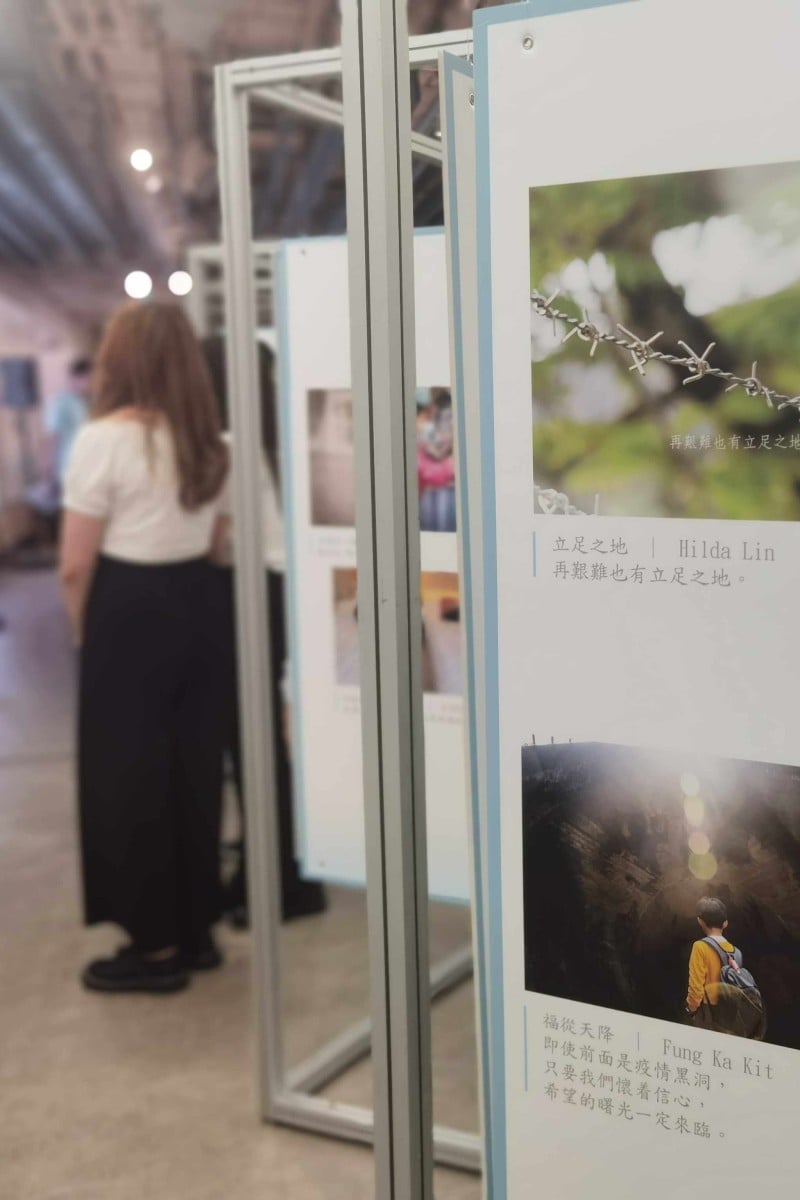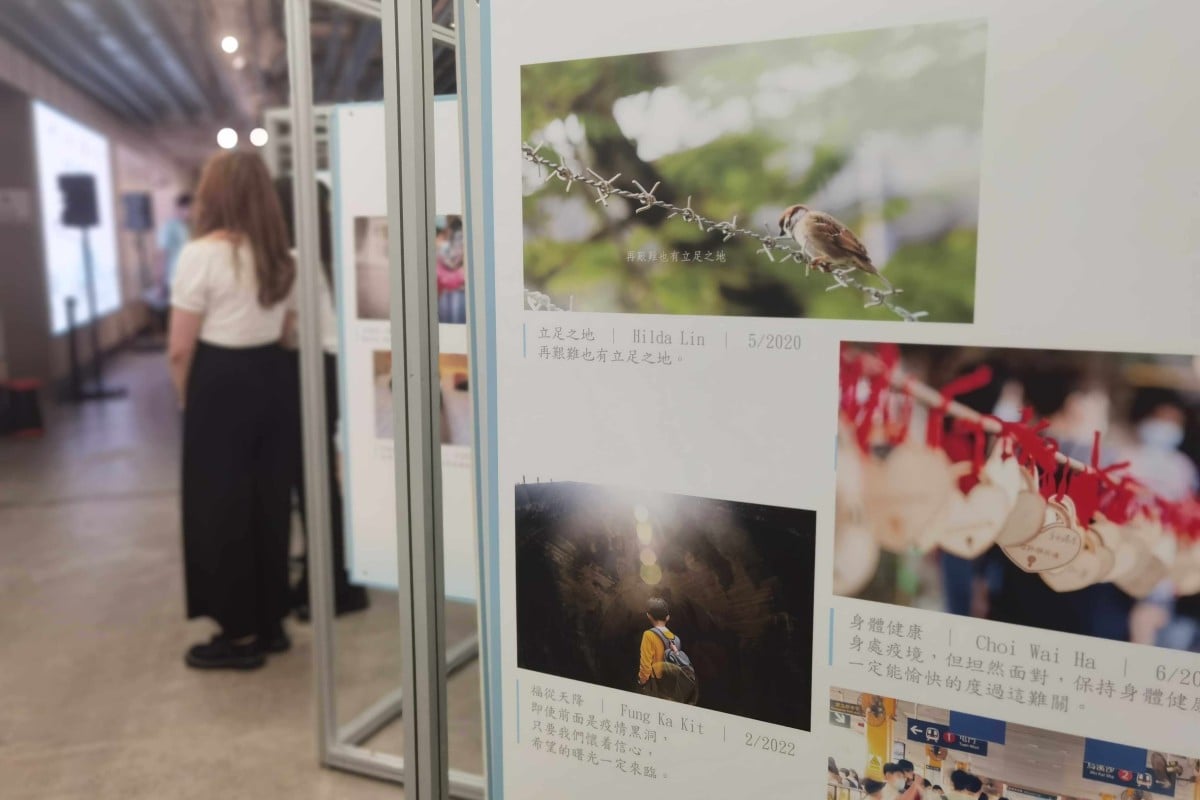
- ‘Sunshine Amid the Pandemic’ is a collection of 10 real-life stories about mental well-being during coronavirus and includes advice from psychologists, social workers
- Psychiatrist says photography can help people explore and process their emotions
 A photo exhibition held by the Mental Health Photographic Society ahead of the launch of the book “Sunshine Amid the Pandemic”, which reflects on Hongkongers’ mental health during Covid-19. Photo: Hazel Luo
A photo exhibition held by the Mental Health Photographic Society ahead of the launch of the book “Sunshine Amid the Pandemic”, which reflects on Hongkongers’ mental health during Covid-19. Photo: Hazel LuoHui*, a former chef, lost his job during the Covid-19 pandemic as Hong Kong imposed strict dine-in restrictions.
As his family’s sole breadwinner, Hui had to find any kind of job just to survive, so he sold vegetables and fish and even worked on construction sites.
“Since I had to change jobs often, I worried about being laid off almost every day,” Hui recalled.
Study finds more than 16 per cent of Hong Kong’s young people likely have mental health issues
The more he thought about his financial problems, the more anxious he became. He even experienced palpitations among other conditions which a psychiatrist later confirmed as symptoms of dysautonomia. This refers to the improper functioning of the autonomic nervous system, which controls bodily functions such as breathing, heart rate and blood pressure.
Thanks to a social worker from a charity, Hui sought help from a private psychiatric clinic, and his condition improved. He is now working as a chef while his wife does a part-time job.
Hui’s experience is featured in a book titled Sunshine Amid the Pandemic, a collection of 10 real-life stories about mental well-being during the pandemic, accompanied by photos of each person. It also includes advice provided by psychologists, psychiatrists and experienced social workers.
The book was launched on June 18 together with a photography exhibition – hosted by the Mental Health Photographic Society, an NGO – that ended last week.
“During Covid, people were focused on saving lives but neglecting mental health,” said Dr Ivan Mak Wing-chit, a psychiatrist and founder of the society. “When the outbreak subsided, many people believed forgetting the pain was the best way to move forward instead of properly addressing negative emotions.”
Mak, who compiled the stories for the book, believes photography is an easily accessible medium that helps people revisit and reprocess their emotions. He hopes the newly launched book will help people achieve “self-healing”.
The book also includes a story about a 17-year-old boy nicknamed Chi who suffers from attention deficit hyperactivity disorder. Chi, who already had difficulty concentrating, found himself even more easily distracted when schools switched to online classes during the pandemic.
Thus, his academic performance suffered. By the time schools gradually resumed face-to-face classes, Chi felt he could not keep up with the syllabus.
The pressure from his parents and school made the situation worse. “They all did not understand my struggles – dad, mum, and the school. They gave me a lot of pressure,” the boy said.
Chi is now gradually getting back on track after receiving treatment.
Mak said individuals who are facing emotional distress should seek help promptly. “Asking for help does not mean being weak. Instead, it means being responsible,” he emphasised.
*Full name withheld at interviewee’s request
